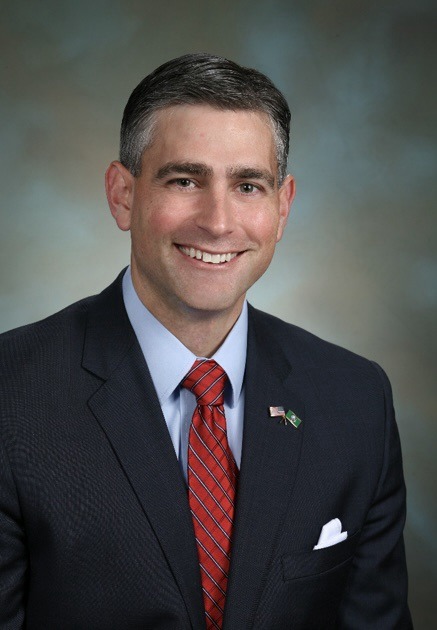Donald Trump’s recent claim that he ordered the military to open a valve releasing water from the Pacific Northwest into California is not only detached from reality but also dangerously misleading. His statement reflects his tendency to make unfounded and grandiose declarations without any regard for the actual mechanics of water management or the lives that could be at risk. The claim that such a valve exists was laughable at best and harmful at worst, diverting attention from the very real and pressing issues surrounding California’s water management.
“The D in Disinformation Stands for Deliberate, He Is Deliberately Stating Lies as Fact.”
On the ground, the reality of water management in California is far more complicated and requires coordinated efforts between local officials, state agencies, and the Army Corps of Engineers. When the Corps recently attempted to release significant amounts of water from Kaweah and Success lakes, local water managers were caught off guard. With barely an hour’s notice, officials like Eric Limas and Aaron Fukuda had to quickly assess how they could prevent massive flooding, a situation eerily reminiscent of the devastation caused by the 2023 floods.
These kinds of emergency releases are serious matters, and the lack of communication from the Army Corps about their sudden decision was troubling. Local water managers, who rely on timely notifications and detailed forecasts to protect vulnerable communities, were left scrambling. Had they not been able to push back, the release of water could have overwhelmed the Kaweah and Tule rivers, risking both human life and critical infrastructure. Yet Trump’s reckless boast added nothing but confusion, distracting from the actual needs for well-considered, collaborative management.
The lack of planning and transparency from the Army Corps was another glaring issue. Water management in the state relies on thoughtful coordination between various stakeholders, including agricultural sectors, local authorities, and public safety agencies. With better communication, this could have been a controlled release, but the suddenness of the decision—paired with Trump’s baseless comments—only added to the chaos. For someone who has no understanding of the intricacies of California’s water systems to take credit for such decisions is a mockery of the work professionals do every day.
What Trump’s statements also ignore is the reality that California’s water issues are deeply tied to climate change. This is not simply a matter of opening and closing valves; it is about managing an increasingly volatile system where extreme weather events, like droughts and floods, are becoming more frequent. Water managers must adapt to these changes, often working with limited resources and under enormous pressure. Political grandstanding, as seen in Trump’s comments, undermines the real work that needs to be done to address these challenges in a meaningful way.
Even more concerning is the possibility that political motivations might have played a role in the Corps’ decision to release the water. While no one can say for sure, the sudden nature of the release raised suspicions. Could it have been an attempt to make a statement or push a political agenda? In any case, the lack of clarity and accountability from the Corps only further highlights the dangerous consequences of politicizing an issue as vital as water management. Our systems should be driven by science, expertise, and collaboration, not by political spectacle.
For local leaders like Victor Hernandez, the uncertainty of not knowing the reason behind the Corps’ decision was frustrating and dangerous. The Kaweah River had already been carefully managed to prevent excessive flooding, but the abrupt release of water threatened to undo that work. When officials like Hernandez, Fukuda, and Limas have to prepare for the worst at a moment’s notice, the very last thing they need is confusion and finger-pointing from those who should be supporting them.
This entire episode underscores how critically important it is to take water management seriously and to ensure that the people making these decisions understand the science behind them. Water managers need accurate data and time to plan for releases, not arbitrary orders that threaten to upend years of careful preparation. When those who have the responsibility of overseeing these systems are left in the dark, the results can be disastrous.
What this situation ultimately reveals is the fragility of our systems and the dangers of ignoring the voices of those who truly understand them. We cannot afford to have individuals like Trump, who have no real grasp of environmental or infrastructure issues, making misleading statements that undermine the hard work of professionals and put lives at risk. Instead, we need leaders who will prioritize science, planning, and the well-being of communities over political rhetoric.
California’s water crisis, exacerbated by climate change and mismanagement, requires thoughtful, informed, and cooperative solutions. The state needs leaders who understand the complexities involved and who will work across all levels of government to ensure that the most vulnerable are protected. Trump’s comments were a stark reminder that when political interests are placed above expertise and human safety, it is the people of California who will ultimately pay the price.





